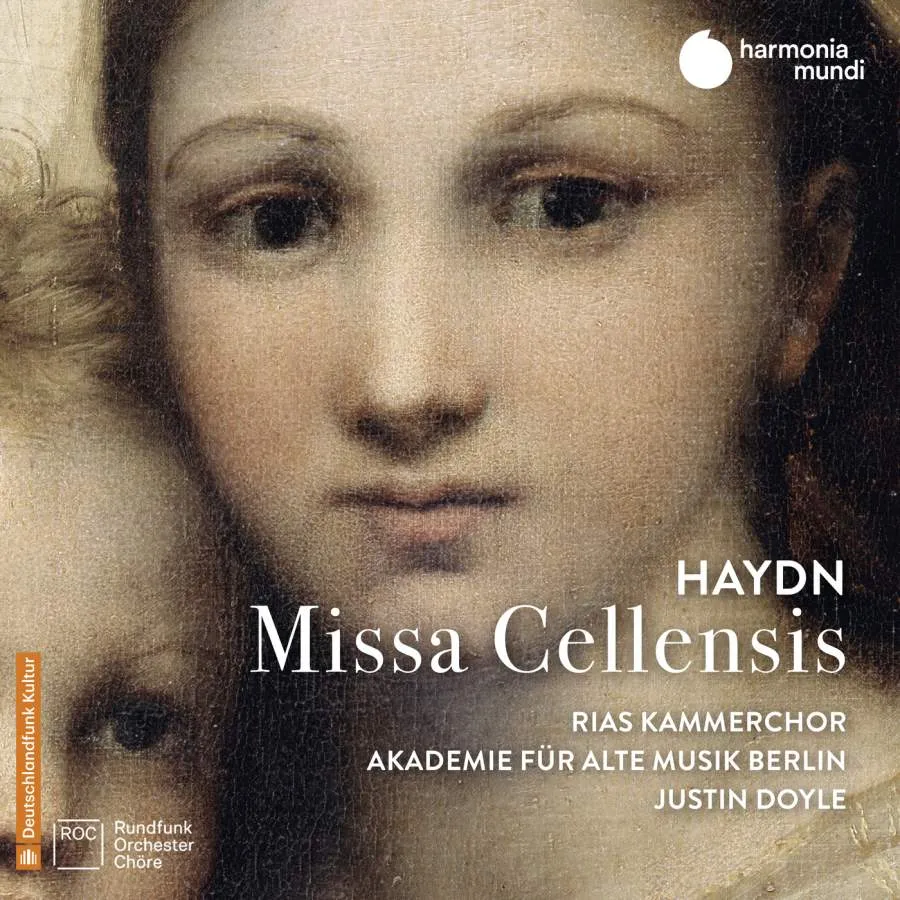
Haydn Missa Cellensis Johanna Winkel (soprano), Sophie Harmsen (mezzo-soprano), Benjamin Bruns (tenor), Wolf Matthias Friedrich (bass); RIAS Kammerchor; Akademie für Alte Musik Berlin/Justin Doyle Harmonia Mundi HMM 902300 65:43 mins
The Missa Cellensis (St Cecilia Mass) is a much earlier piece than the famous series of Masses Haydn wrote each year for the name-day of Princess Esterházy. He probably composed it in 1766, around the time he took up the position of Kapellmeister to the previous Prince Esterházy. Missa Cellensis is conceived on a scale so large as to make it unsuitable for liturgical use, and it wasn’t published in an unabridged form until as late as the 1950s. Like Mozart’s great Mass in C minor, it’s a work in which operatic arias rub shoulders with choral fugues in old-fashioned style. The Laudamus te is a coloratura soprano aria, very well sung here by Johanna Winkel; while the Domine Deus has the three lower soloists enter one by one, with spectacularly wide leaps for the bass, before they’re all heard together. The Qui tollis is a tragic piece in C minor, with a throbbing accompaniment rather like the tolling of bells, and vocal writing that verges on recitative style; the Et incarnatus est is another slow movement in the minor, this time in arioso style, and beginning with a long tenor solo which gives Benjamin Bruns the opportunity to shine.
Haydn’s settings of the Benedictus are often unconventional, and here he writes a surprisingly agitated choral piece, again in the minor. The following Agnus Dei is scored for solo bass with strings and organ alone, and its stabbing accents intensify the prayer for peace. Altogether, there is much to discover in this little-known work, and the conductor Justin Doyle with his talented team of soloists and the RIAS Chamber Choir and Berlin Akademie für Alte Musik do it proud. Recommended.
Misha Donat